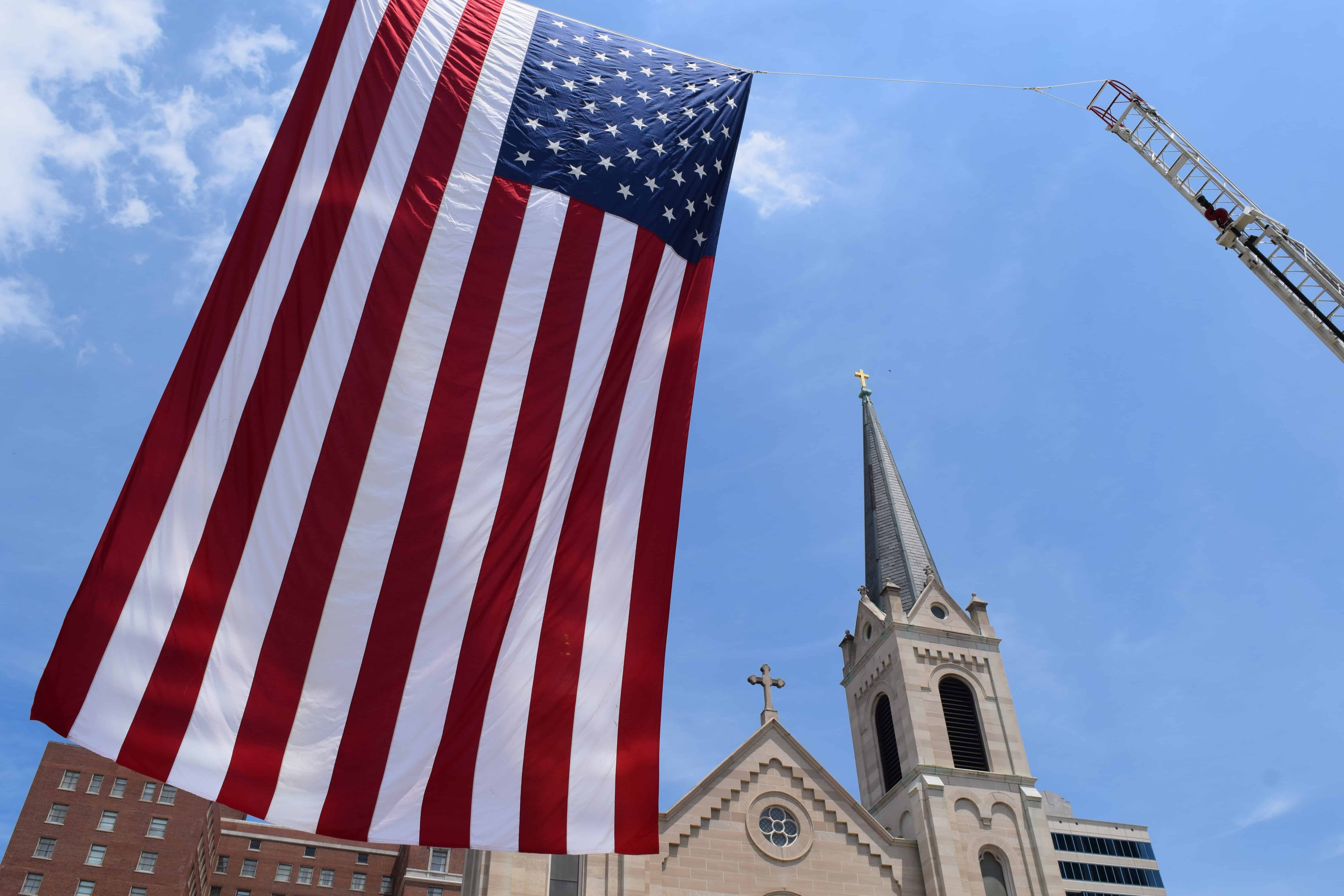When you hear the word “California,” there are many words or images that might come to mind: the Golden Gate Bridge, sunny beaches, Hollywood, liberal… but I would guess that the word “Catholic” doesn’t rank high on that list. Yet, not only does California have more Catholics than any other state, but the race for the state’s next governor is turning out to be a race between three Catholics1: Gavin Newsom,2 Antonio Villaraigosa,3 and John Cox.4
There is, however, a fourth Catholic on the ballot: Desmond Silveira. Even though third-party candidates likely won’t advance to the general election due to the voting system in California, Silveira points out that “third parties don’t need to win the race for the campaign to be successful. A third party can also ‘win’ by shifting the major parties to the left or right in furtherance of the third party agenda.” What this means practically is that beyond just voting, Silveira and the American Solidarity Party are trying to address the attitudes and values that people bring with them to the polls in an attempt to show the Democratic and Republican parties that they currently “don’t reflect the values of the majority of Americans” and that “this is particularly true for Californians.”
To illustrate this, one merely has to look at what these candidates are campaigning on. Democrats like Newsom tout their unabashed support for the federal contraceptive mandate5 and taxpayer funding for Planned Parenthood.6 Republicans like Cox claim that illegal immigrants in “sanctuary cities” are dangerous murderers.7
When faced with choices like these, Catholic voters end up selecting one of the two for a variety of reasons or choose not to vote at all rather than do something they perceive as compromising their consciences. One attitude that requires re-examination is that somehow being Catholic means that one must either support the Democratic or Republican platform: an attitude that our two-party system only exacerbates. Doing so often means that we have let the values of either party define our own values, and we may even inadvertently confuse partisan values for religious ones.
Silveira and members of the ASP have also grown tired of this seemingly pervasive attitude and want to demonstrate that it is possible to bridge the chasm between the Democrats and Republicans with their support of the “whole-life” approach: upholding human life and dignity from conception until natural death. This is not an easy task given that California continually attacks preborn human life,8 seems not to care about safeguards in the execution of physician-assisted suicide,9 and recently approved expediting executions of inmates on death row.10 Not to mention that its schools rank in the bottom 20% in the nation, despite the state being the fifth largest economy in the world. Silveira and the ASP want to bring together a community of faithful citizens who want to hold both parties accountable for stances that inherently violate the Christian worldview that every human is made in the image and likeness of God, our Creator. The name of the party itself points to the ultimate vision of its adherents: solidarity. “The solution to most of our problems isn’t merely to look out for our neighbor, but to have a oneness with them…It is easy to forget, ostracize, blame, persecute, or ignore people when they are viewed as ‘the others’.”
Faithful citizenship, however, entails more than going to the polls. As Silveira points out, third parties don’t need to win an election to have a successful campaign. While we need to vote to correct structural injustices gradually in our society, we are also called to love our neighbors immediately in our local communities. For Catholics voting for Republicans, are we getting involved with organizations like Catholic Worker or Catholic Charities that provide affordable housing, basic health care and nutrition, serve the homeless, and welcome the immigrant and refugee? For Catholics voting for Democrats, are we getting involved with organizations like Birthright International that provide services for women and their babies or a healthcare facility that serves those who are nearing the end of their lives? For all Catholics, beyond voting and serving our local communities, are we paying attention to what’s going on in our government, advocating for those who need a voice the most when they might be ignored in the halls of power?
This attempt to be in solidarity with our neighbors (and especially the voiceless) as faithful Catholic citizens also reflects the renewed sense of mission within the global Society of Jesus to reconcile the estranged. How do we better listen to others whose worldviews we do not understand, who are so far from the “center” that they are not heard, or whom we simply cannot see how they too are made in the image and likeness of God? There’s always more at stake in casting our ballots than whom we’re voting for. More importantly, how we vote often comes from how we see the world before and after we cast our ballots. What’s at stake is really how we view all members of our local and global communities, from the preborn to the convicted, the dying, and everyone in-between. Are we only to stand in solidarity with those who we like and feel are deserving or are we willing to ask Jesus to give us a love like his to stand in solidarity with all members of the human family?
- The current termed-out governor, Jerry Brown, is also a Catholic and former Jesuit ↩
- former Democratic mayor of San Francisco ↩
- former Democratic mayor of Los Angeles ↩
- Republican businessman from San Diego ↩
- President Trump has temporarily suspended this requirement ↩
- The Republican-controlled Congress continued such funding in passing the most recent federal budget that President Trump has subsequently signed ↩
- Campaign website ↩
- Abortion pills mandate at all CA public universities ↩
- Response to “End of Life Options Act” ↩
- California passed Proposition 66 in Nov. 2016 ↩


